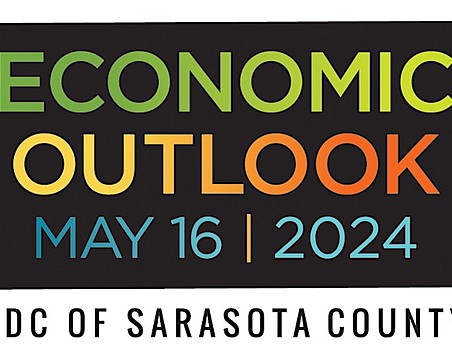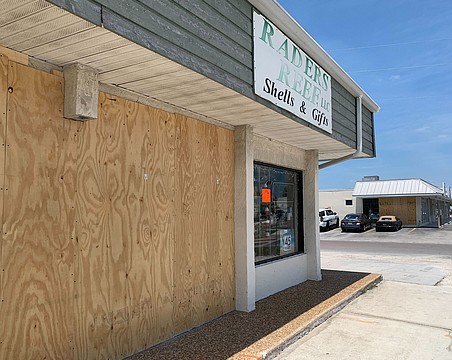Coffee Talk
+ The big hurricane gamble
With only $1 billion in cash reserves in its hurricane catastrophe fund, Florida is far from ready to handle the billions of dollars in claims from a major hurricane. Hurricane Katrina, for example, caused $35 billion in damage.
Now that legislators have shifted the property insurance burden onto the state, how much money would Florida government have to assess homeowners after a storm to make up the difference?
A study published in March by Tillinghast Towers Perrin shows the average homeowner would have to pay an assessment of $13,971 to cover a $15 billion storm. Even a $2 billion storm would cost the average homeowner $1,726.
"You can be living in a bunker in the middle of the state, and you're still going to be assessed," says John Pollock, president of Fort Myers-based insurance brokerage Oswald Trippe. "Now, the risk is almost entirely borne by the state - all of us."
The state now has $408 billion of exposure and by next year it may be double as more commercial properties get coverage, according to Pollock and the Insurance Information Institute. And remember: there's just $1 billion in the bank now.
+ Warehouse bet paying off
The vindication train engineered by Tampa-based commercial real estate broker Steve Kossoff continues to roll.
First, in a deal signed last month, Bradenton-based retailer Beall's agreed to lease 200,000 square feet in the former Winn Dixie warehouse in Sarasota - the same 950,000-square-foot complex surrounding 60 acres on Palmer Ranch in Sarasota County that Kossoff and his Meridian Development Group bought for $30 million last year. And the same building other commercial brokers said would never be viable, as it sat empty for two years before Kossoff bought it. And again, the same building at which Sarasota County threw roadblock after roadblock.
The second tenant is United Natural Foods, a Dayville, Conn.-based organic and natural food distribution company. The publicly traded company (Nasdaq, symbol: UNFI) will lease 400,000 square feet in the complex.
+ This sun far from cooling
Sarasota based valve manufacturer Sun Hydraulics is a hot company once again in Business Week magazine's annual Hot Growth list. The company's shares, traded under the symbol SNHY are hot, too.
The Hot Growth list is a combination of three factors: Sales and earnings over the last 12 months, three-year sales growth and return on capital investments. The magazine picks its top 100 out of a database of 10,000-plus actively traded companies with annual sales of more than $50 million and less then $1.5 billion; a current market value of greater than $25 million; and a current stock price of at least $5 a share.
Sun is ranked 33rd using those calculations. It had $149 million in sales and earned $17.8 million. It posted a 26% increase in sales, alongside a 92% increase in profits. And its return on capital, which the magazine ranks as earnings expressed as a percent of total debt and equity, is 18.6%.
In typical understated Sun fashion, the company didn't splash news of its inclusion on the list all around. But shareholders responded: The stock was in the mind to high $30 range the two weeks before the issue, and by June 4, when the issue was published, the stock closed at $46.08, just 38 cents off its 52-week high.
Scorching stuff indeed.
+ Where's 'Maybe'button?
Garrett Richter, the Republican state representative from Collier County, says he wishes he could have voted "maybe" when confronted with the property insurance bill earlier this year.
"There's not a third button that says maybe," lamented Richter, who says he reluctantly voted to approve the legislation that will make the state the single- largest property insurer.
Speaking to business executives in Fort Myers recently, Richter says the legislature failed to create an environment where competition thrives. "In a free market, competition drives prices down," he says.
Maybe there's a "take-it-back" button.
Spotted here first
Regular Coffee Talk readers know we are not above bragging when the business community recognizes someone the Review previously wrote about for doing great things in business.
The latest entries are JoDell Anderson, a former intensive care unit nurse who invested $1 million of her own money into running her own day spa business, and Michael Carlson, who designed the interior of his new architecture studio in downtown Sarasota with green building concepts. (For Anderson's story, see 8/4/06 Review and for Carlson's, see 5/25/07).
Both were winners at the Greater Sarasota Chamber of Commerce's annual Small Business Award luncheon held June 4. Anderson won for Woman Entrepreneurial Excellence and Carlson received his award in the Think Green category.
+ Exempt us too!
Firefighters aren't a common sight at chamber of commerce lunches, except maybe when the rubber chicken goes up in flames.
So it was a surprise to see a half-dozen fire chiefs from various districts show up at a luncheon organized by the Southwest Florida Chamber of Commerce in Fort Myers.
But no one should have been surprised because the speakers were the Southwest Florida legislative delegation and the subject was tax reform. Sen. Burt Saunders, the Republican who represents parts of Lee and Collier counties, was quick to say fire districts should be exempt from any reform that would cut their budgets.
The waste that you read about in state government really isn't as bad as everyone believes, Saunders assured the crowd. "There is waste in every budget, but it's not 30% to 40%," Saunders says. "It's maybe 10%.
+ Farmers in our future
Agriculture is a huge business in Florida, especially in inland counties.
But does agriculture business have a future?
The answer is a qualified yes, according to Howard Finch and Stuart Van Auken, two professors at Florida Gulf Coast University's Lutgert College of Business in Fort Myers.
Restrictions on urban sprawl for environmental reasons will keep lands open for farming, they say. What's more, consolidation means larger agribusiness companies will acquire more land, making farming more viable through economies of scale. This could offset rising labor costs and increased global competition, especially if companies invest in technology for rapid crop growth and harvesting.
Good soil, a long growing season, proximity to large cities on the east coast, and tariffs and other restrictions on imported food for safety reasons bodes well for Florida agriculture, they conclude.
+ A reason to believe
What housing slump? While this issue of the Review documents many of the struggles and challenges faced by homebuilders Gulf Coast-wide, at least one homebuilder, Lakewood Ranch-based Pat Neal, is thinking the tough times could be just about over.
Neal has good reason to be optimistic and claim the market is improving: His firm, Neal Communities had a superb sales month in April and an even better May.
April sales were 53% better than the previous year, the company reported. And in May, the company sold 15 homes, with an average sales price in the high $500,000 category. The latter month was so good, it was 300% better than 2006 and 15% better than 2005. It even tied the 2004 results. And those were the good old days.
+ Valente returns to Tampa
Mickie Valente, well-known former business columnist for The Tampa Tribune and executive for Enterprise Florida in Orlando, has re-appeared in Tampa.
Valente is now communications and progress director for the Florida Council of 100, a private, nonprofit organization formed in 1961 to provide advice to the governor on Florida issues from a business perspective.





